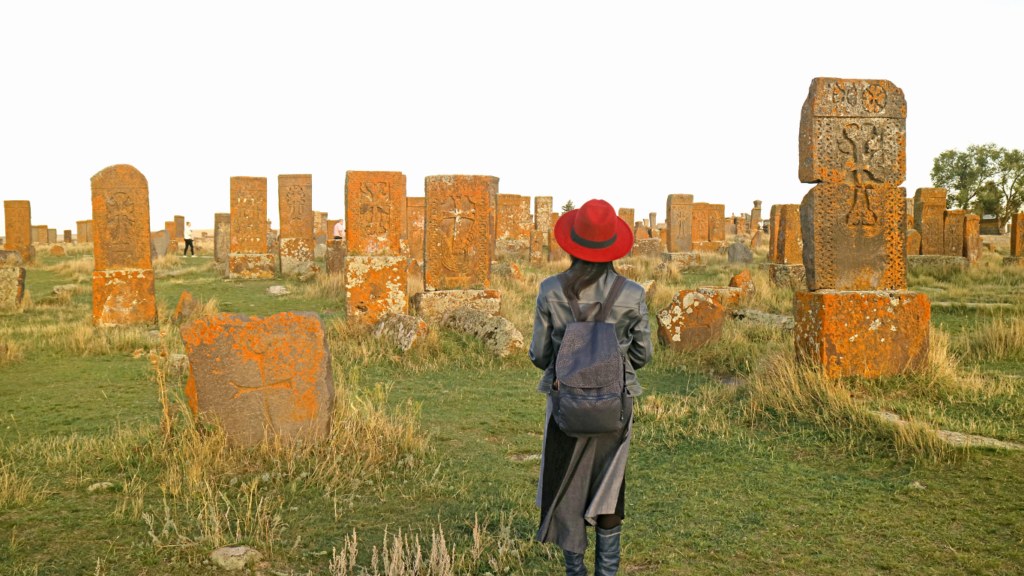Surrogacy Insights
As of May 2025, surrogacy in Armenia remains legal and continues to be a viable option for international intended parents. Recent legislative updates have expanded access and clarified procedures, enhancing Armenia’s position as a surrogacy destination.
- Surrogacy has been legal since 2002. Law on Human Reproductive Health and Reproductive Rights. (Law No. ZR-474, 11 December 2002).
- Legally married heterosexual couples or single people can pursue surrogacy in Armenia.
- The intended mother must be 55 years or younger.
- The surrogate must be between the ages of 18 – 38 years, have given birth previously, and can only participate in 2 surrogacy journeys.
- The Intended Parents must visit Armenia to start the process. It cannot be initiated from abroad.
- Compensated surrogacy is permitted.
- Sperm or egg donation cannot be anonymous.
- The surrogacy or donor contracts must be signed in person before a notary.
- The surrogate cannot have a biological connection to the child she carries, and at birth, a DNA test must prove she is not related to the child. Therefore, traditional surrogacy is not practiced.
- The government of Armenia has a program that pays for surrogacy services for those families who lost sons during the war.
- Intended parents are recognized as the legal parents from the moment of the child’s birth. Their names are listed directly on the birth certificate, and the surrogate has no parental rights or responsibilities.
- Genetic testing to determine the sex of the child is prohibited unless there is a risk of inheriting genetic problems.
- Children born through surrogacy in Armenia to foreign parents do not automatically acquire Armenian citizenship. Intended parents must apply for their child’s citizenship in their home country and should consult with legal professionals to understand the requirements and processes involved.
- The cost of surrogacy in Armenia ranges from $35,000 to $54,000, depending on various factors such as medical needs and agency fees. The entire process, from initial consultation to the child’s birth, typically spans 12 to 18 months.
Gay Marriage
In Armenia, same-sex marriage is not legally recognized, as the country’s constitution defines marriage as a union between a man and a woman. This prohibition on same-sex marriage reflects Armenia’s generally conservative stance on LGBTQ+ issues.
Although homosexuality was decriminalized in 2003, LGBTQ+ individuals continue to face significant social stigma and discrimination. There are no comprehensive legal protections in place to prevent discrimination based on sexual orientation or gender identity in areas like employment or public services. While some LGBTQ+ advocacy groups work within the country, the broader legal and social environment remains challenging for the advancement of LGBTQ+ rights. The legalization of gay marriage is often a significant step toward broader LGBTQ+ rights, including the right to become parents. Once same-sex marriage is recognized, many countries follow legal reforms that allow gay couples to adopt or have children through surrogacy.
This reflects a shift toward equal recognition of family rights, ensuring that same-sex couples have the same opportunities to build families as heterosexual couples. Legalizing gay marriage often sets the foundation for these expanded parental rights, promoting inclusivity and equality.

Future Legal Developments
There is increasing concern that surrogacy in Georgia may soon be limited to Georgian citizens, with rumors suggesting that international surrogacy could be made illegal in the country.
In response, many IVF clinics and surrogacy agencies in Georgia are expanding by opening offices in Armenia.
With favorable surrogacy laws, Armenia is being viewed as the next major hub for surrogacy.
July 12, 2024
The Armenian Parliament passed amendments to its surrogacy law, increasing the age limit of intended parents from 53 to 55 years. Additionally, the age for surrogate mothers was raised from 35 to 38 years
March 2025
Armenia amended its surrogacy laws to allow single individuals, including foreign nationals, to pursue surrogacy arrangements. Previously, only heterosexual couples were permitted to engage in surrogacy within the country.



